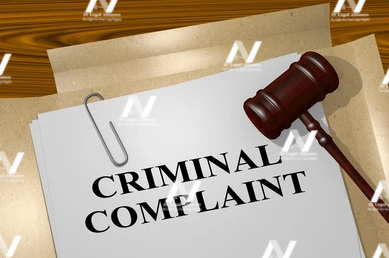Transfer of Investigation to CBI Cannot be Sought on Mere Allegations of Unfairness: Delhi High Court
- Published on: Nov 30, -0001
The Delhi High Court refused to transfer further investigation in a sexual harassment case to the CBI, stating that such a transfer cannot be made just because a litigant feels unfairly prejudiced. The court suggested that approaching the Magistrate under Section 156(3) of the CrPC is the appropriate course of action
Background of the Case:
The case in question is related to a former employee of M/s GMR Delhi International Airport (P) Ltd (GMR DIAL) who had filed a writ petition in the Delhi High Court seeking the transfer of further investigation in relation to the FIR registered by her under Section 509/34 of the Indian Penal Code, 1860 (IPC) at P.S. IGI Airport to the Central Bureau of Investigation (CBI).
Issue before the Court:
The issue before the court was whether the further investigation in the sexual harassment case should be transferred to the CBI as requested by the petitioner.
Arguments of the Parties:
The petitioner argued that she was unfairly prejudiced by the investigation carried out by the State Police and requested the transfer of the investigation to the CBI. The petitioner also sought the arrest or detention of two persons for further investigation.
The State Police argued that there was no evidence on record to show that the investigation carried out by them was unfair or lacked proper procedure. The State Police also stated that the plea seeking transfer of further investigation to the CBI was barred by Res Judicata as the petitioner had previously filed a similar writ petition before the High Court, which was rejected.
Verdict of the Delhi High Court:
The Delhi High Court rejected the plea seeking the transfer of further investigation to the CBI. The court stated that there was no evidence on record to show that the investigation carried out by the State Police was unfair or lacked in proper procedure. The court recommended that the correct course of action is to approach the Magistrate under Section 156(3) of the Code of Criminal Procedure, 1973 (CrPC), who can order further investigation under Section 173(8) even after the trial commences.
The court also rejected the petitioner’s plea to arrest or detain two persons for further investigation, recommending that the petitioner should approach the MM seeking further investigation or reinvestigation in accordance with the law.
Lastly, the court held that it could not cancel the bail granted by the competent court and direct the arrest of the accused in the case since the charge sheet had already been filed.
Conclusion:
The verdict of the Delhi High Court has established that an order for the transfer of an investigation is a serious matter and cannot be granted just because a litigant feels unfairly prejudiced. The court has recommended that the correct course of action is to approach the Magistrate under Section 156(3) of the CrPC. The court has also highlighted that invoking the writ jurisdiction to seek relief is not in line with the correct procedure when remedies for the same are available under the CrPC. The verdict reaffirms the importance of following proper legal procedures and highlights the limitations of the writ jurisdiction in seeking relief.
The information provided is sourced from publicly available news feeds and is not exhaustive of subject matter, we accept no liability for any errors or omissions. For legal advice, please consult a legal expert. Contact us at legalhelp@avlegal.in or 9953470048.
.png)





